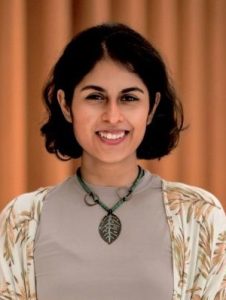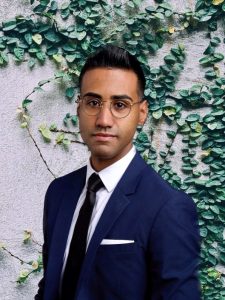What does responsible AI look like? What is the current international AI policy landscape, and how do we parse crucial signals from the noise?
These questions prompted the official kick-off of the second cohort of AI Connect during its inaugural webinar on March 27th, 2024, for AI Connect II (AIC2), a year-long initiative led by the Atlantic Council GeoTech Center and the U.S. Department of State Bureau of Cyberspace and Digital Policy. The program brings together a diverse range of stakeholders representing more than 60 countries to discuss, learn about and collaborate on the responsible development, deployment and use of AI technologies. The first of thirteen virtual webinars throughout the program, webinar 1 provided context for the current state of AI governance, details on the new cohort, an introduction to planned programming, and perspectives from AI Connect I alumni.
Following welcome remarks by the GeoTech Center’s Acting Senior Director Raul Brens and U.S. Department of State Bureau of Cyber and Digital Policy Program Manager Andrew Hunsberger, the AI Connect II launch featured Daniel Remler, policy advisor for the Office of the Special Envoy for Critical and Emerging Technology in the U.S. Department of State. Remler’s keynote provided a comprehensive recent history of global policy efforts to encourage AI innovation while mitigating social and economic risks, stressing the understanding of AI as a general-purpose technology where the context of use determines outcomes.
Remler’s remarks were followed by an overview of the incoming cohort and planned programming by GeoTech Center Associate Director and AI Connect program lead Trisha Ray and U.S. Department of State Bureau of Cyberspace and Digital Policy Foreign Affairs Officer Caitlin Ard.
Lastly, participants had the opportunity to hear from AI Connect alumni Nashilongo Gervasius (Namibia) and Jibu Elias (India) in a conversation moderated by GeoTech Center Assistant Director Caroline Thompson. Both alumni emphasized the benefit of the program’s global cohort when discussing AI development and regulation. Elias, India’s country lead for Mozilla’s Responsible Computing Challenge, highlighted how the program provides its participants with a learning environment and platform to share opportunities and challenges of AI implementation in their cultural contexts.
This program has not just provided me an understanding of AI issues from a global perspective…but also the ability to present on what is happening in India.
This sentiment was echoed by Elias’ fellow alum, Nashilongo Gervasius, member of UNESCO Information for Development Working Group and lecturer on digital communications at Namibia University of Science and Technology. Gervasius mentioned the pivotal role of engaging with regional AI experts during the program’s spring 2023 African regional workshop in Nairobi, Kenya. Through the program’s funding, Gervasius was also able to join the ITU AI for Good Conference in Geneva, Switzerland, and the AI Conference in San Francisco, California, where she engaged with international and U.S. officials on issues critical to their respective regions.
AI Connect II’s multistakeholder approach to AI education and governance aims to inspire leaders across the globe to advance responsible AI and digital freedom while elevating the voices of the global south in AI policy conversations through a collaborative network of experts.
To keep up with the GeoTech Center’s latest work on artificial intelligence, join our mailing list below:
Stay connected
Sign up to join the Atlantic Council’s AI mailing list.
Related resources
Learn more from the resources referenced in AI Connect II Webinar 1.
- White House Executive Order on AI: https://www.whitehouse.gov/briefing-room/presidential-actions/2023/10/30/executive-order-on-the-safe-secure-and-trustworthy-development-and-use-of-artificial-intelligence/
- OECD AI Principles: https://oecd.ai/en/ai-principles
- OECD AI Observatory: https://oecd.ai/en/
- Hiroshima AI Process (G7 Plus): https://www.oecd-ilibrary.org/science-and-technology/g7-hiroshima-process-on-generative-artificial-intelligence-ai_bf3c0c60-en
- Research ICT Africa: https://researchictafrica.net/
- UNESCO Recommendation on AI: https://unesdoc.unesco.org/ark:/48223/pf0000380455
- UNGA Resolution on AI: https://www.un.org/en/general-assembly-adopts-landmark-resolution-artificial-intelligence



